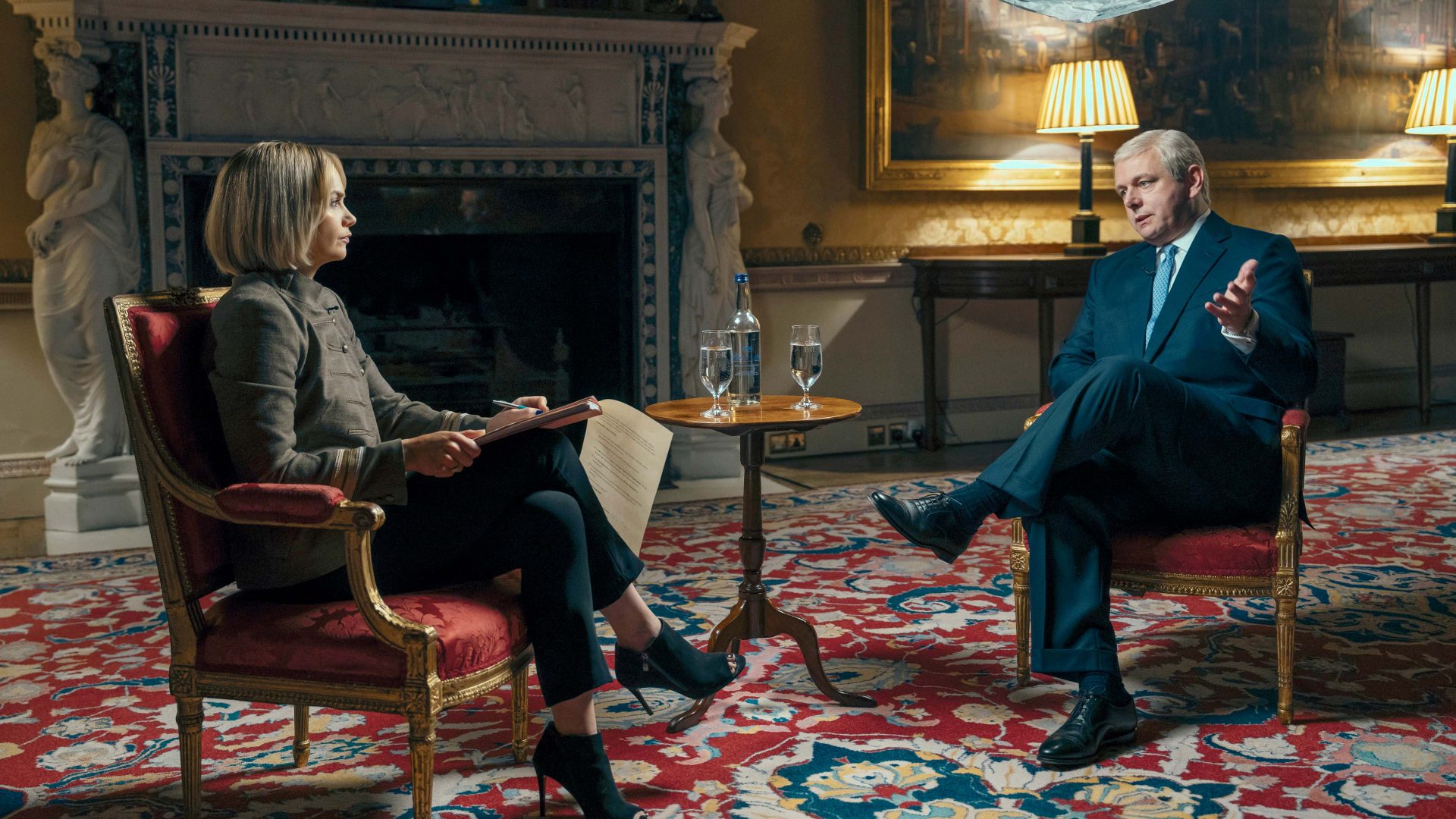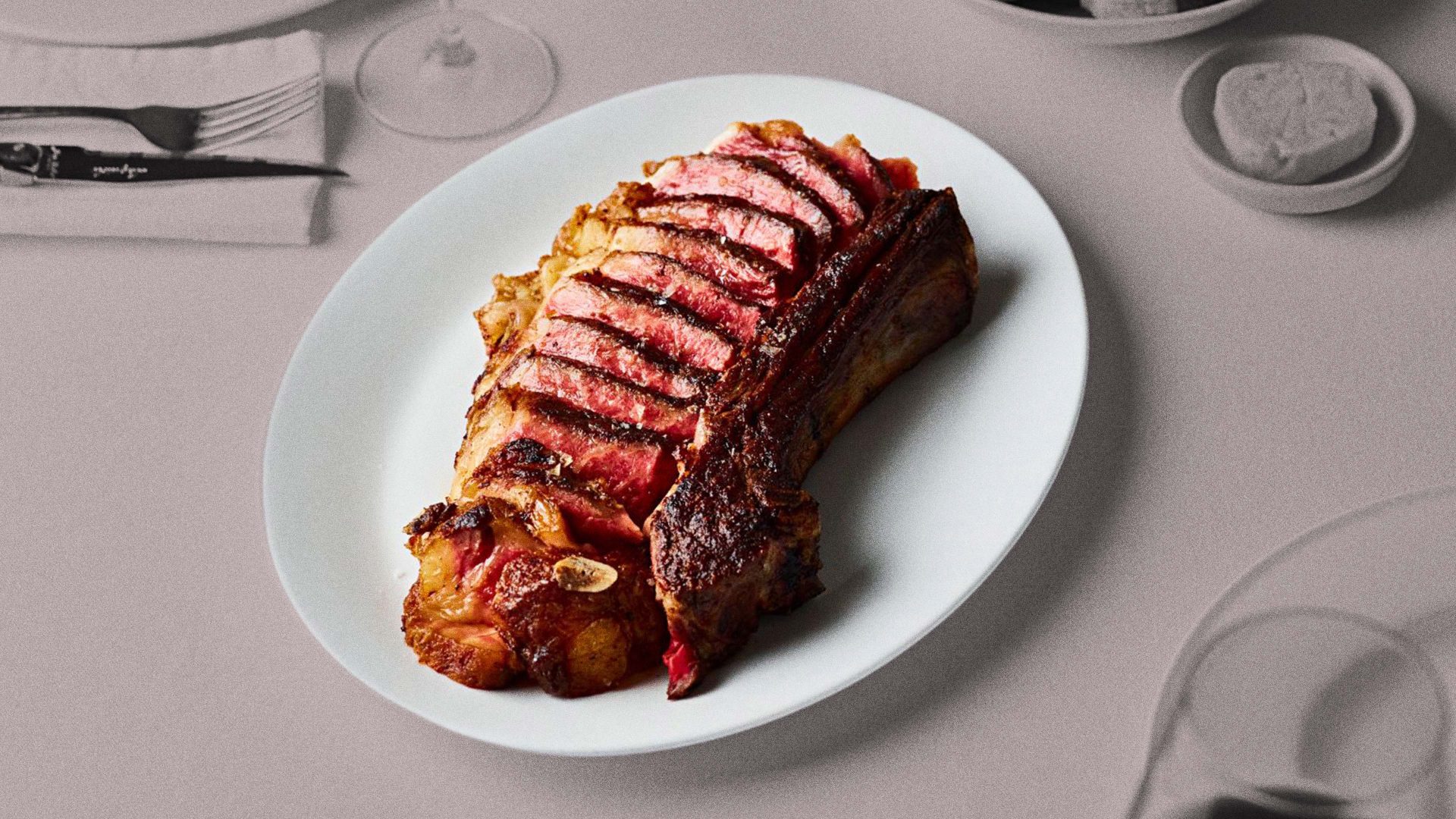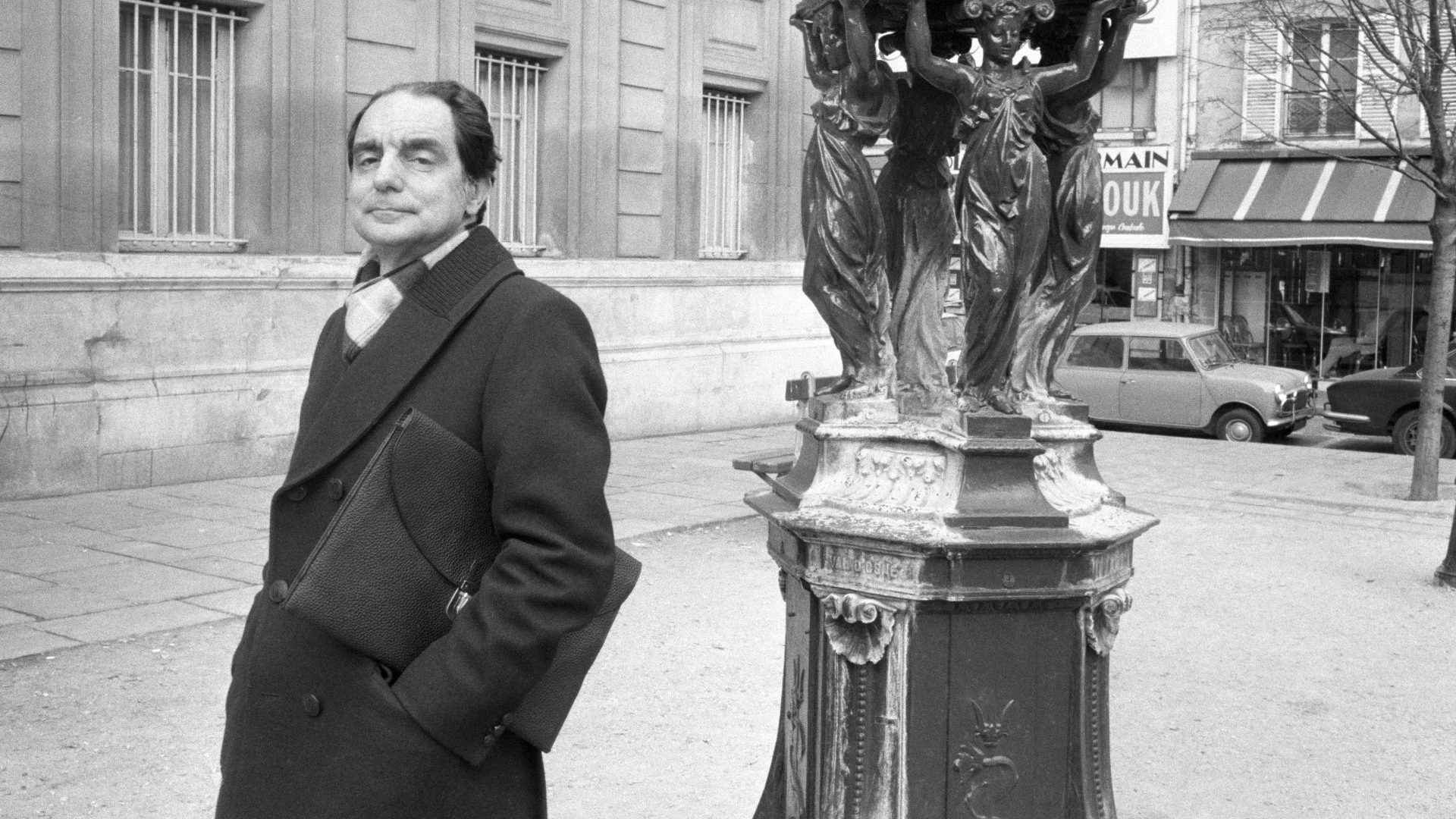STREAMING
A VERY ROYAL SCANDAL
Prime Video, September 19
There is a mischievous breach of the fourth wall in Julian Jarrold’s magnificent three-part dramatisation of Emily Maitlis’s Newsnight interview with Prince Andrew when a sense of the story’s true significance hits you like a juggernaut.
Andrew, brilliantly played by Michael Sheen (who else?), is preparing for the filming at Buckingham Palace and wonders aloud how his exchange with the BBC presenter will be lit. “They got Nixon that way,” he muses – which sends the imagination scurrying back to David Frost’s legendary interviews with the former president in 1977. It was, of course, Sheen himself who played Frost in Peter Morgan’s stage play and Ron Howard’s subsequent movie version.
The Maitlis-Andrew interview in 2019 is our age’s equivalent of that great exclusive. Like Frost’s interrogation of Nixon, Maitlis’s questioning of the Duke of York was about power and accountability – or its absence. It was also about the fragility of institutions such as the royal family in the digital age and the ethics of #MeToo.
Andrew denied that his relationship with the late sex-trafficker and financier Jeffrey Epstein had involved any impropriety, and categorically rejected Virginia Giuffre’s allegation that, at the age of 17, she had sex with the prince three times. Her lawsuit accusing him of rape was settled in 2021 for a sum believed to be around £12 million.
In April, Netflix released Scoop, based on the account of Newsnight fixer Sam McAlister, a decent enough drama that leant into the classism experienced at the BBC by McAlister herself, played by Billie Piper. But A Very Royal Scandal is television of a different order, and has much more to say about journalism, royalty and the victims of entitled men who take impunity for granted.
For a start, Ruth Wilson is much better cast as Maitlis than was Gillian Anderson, who played her as a remote ice queen. Wilson portrays the BBC’s star presenter – now an award-winning podcaster with The News Agents – far more accurately as a journalist with a lively sense of humour who thinks deeply about her trade and its responsibilities. The scenes with her family and the Newsnight team are particularly accomplished.
Joanna Scanlan is excellent as Andrew’s private secretary, as is Alex Jennings playing Sir Edward Young, her counterpart in the Queen’s household. Jeremy Brock’s tremendous script gives all the cast plenty to get their teeth into. Not to be missed.
CINEMA
THE CRITIC
Selected cinemas
Based on Anthony Quinn’s novel Curtain Call (2015), Anand Tucker’s thriller seems at first to be an entertaining period piece, satirising the West End and Fleet Street of the 1930s, but then, thanks in large part to Patrick Marber’s deft screenplay, it becomes something darker.
Jimmy Erskine (Ian McKellen) is the veteran theatre critic of the Daily Chronicle, waspish, erudite and merciless in print. He lives with his assistant and lover, Tom (Alfred Enoch), and takes great risks cruising for casual sex at a time when the police and black-shirts are actively persecuting gay men. His position on the newspaper is jeopardised when its proprietor dies and is replaced by his son, the new Viscount Brooke (Mark Strong), who seeks from his employee a lighter touch in print and a less reckless lifestyle.
Meanwhile, Jimmy is pitiless in his reviews of performances by Nina Land (Gemma Arterton) – who is especially hurt, as his writings inspired her to become an actress in the first place. Facing the sack, however, he hatches a blackmail plot that will save his job and make a star of Nina; at which point his manipulations lead to tragedy.
The Critic is not quite a one-man show, but its power resides principally in McKellen’s extraordinary capacity to present Jimmy as both a figure of pathos and an unforgivable narcissist.
THEATRE
CORIOLANUS
National Theatre, until November 9
As the literary historian Stephen Greenblatt has observed, the Roman general Caius Martius Coriolanus is characterised by “a proneness to rage, a merciless penchant for bullying, an absence of empathy, a refusal to compromise, a compulsive desire to wield power over others”. Yet Lyndsey Turner’s fine production of Shakespeare’s last major tragedy makes him, for all his brutality, a compelling opponent of empty populism and the charade of politics. “What’s the matter, you dissentious rogues,” he seethes. “That, rubbing the poor itch of your opinion/ Make yourselves scabs?” Why, as prospective consul, should he show his scars to the people, and abide “by the yea and no/ Of general ignorance”?
David Oyelowo is formidable as the patrician soldier who rails against the hypocrisy and performative scheming of those who pursue power. Also terrific is Pamela Nomvete as his mother Volumnia. A parable for our times, brought back to furious life.
BOOK
Nexus: A Brief History Of Information Networks From The Stone Age To AI
by Yuval Noah Harari
Fern Press
After Sapiens (2011), a history of our species that has sold 25 million copies, and Homo Deus (2016), an exploration of humanity’s prospects in the 21st century, Harari now turns his attention to artificial intelligence. But this is not just another book about AI. With his trademark maximalism, the Israeli philosopher-historian examines the development of information networks from marks on cave walls to the coming of “our new AI overlords”, and his findings do not disappoint.
Information, he insists, is not the same as knowledge or truth, and its manipulation has always underpinned our capacity for self-destruction. What we confront now is a “Silicon Curtain”, the “code on your smartphone [that] determines on which side…you live, which algorithms run your life, who controls your attention and where your data flows”. As ever with Harari, there is a compelling sense of how much is at stake. It is available to us to regulate this new technology, enhance accountability and renovate our institutions accordingly. On the other hand, “AI might extinguish not only the human dominion on Earth but the light of consciousness itself, turning the universe into a realm of utter darkness.” Quite a choice, really.
CINEMA
SPEAK NO EVIL
General release
James Watkins’ remake of Christian Tafdrup’s Danish original is a high-quality horror-suspense movie with a clear debt to Sam Peckinpah’s classic Straw Dogs (1971). On holiday in Italy, Paddy (James McAvoy) and his partner Ciara (Aisling Franciosi) make friends with Ben (Scoot McNairy) and Louise (Mackenzie Davis) and invite them to stay at their farmhouse in Devon.
Ben and Louise are at a crossroads in their marriage – Ben feeling unmanned by the loss of his job and Louise’s infidelity – and decide that a change of scene might raise their spirits. Tiggerish to an unsettling extent, Paddy urges his guests to embrace the fun and freedom of nature red in tooth and claw. We’re all “cave-dwellers” at heart, he insists. The Chuck Norris movie playing in the background as the two couples chat in the kitchen neatly prefigures the violence ahead.
Needless to say, the house harbours a dark secret and the rural fun soon turns nasty. Speak No Evil is well paced and absorbing, but its true engine is McAvoy’s remarkable performance as a raging id in casual clothes. Just watch his hail-fellow-well-met grin harden into a wintry rictus of uncontainable fury.




